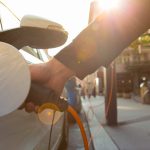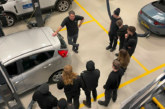Sir Richard Branson argues that plans to ban the sale of new petrol and diesel vehicles from 2040 need to be brought forward to 2025. But while a third of drivers in Britain have warmed to the idea of switching to electric, the ‘Britain Under the Bonnet’ report from Close Brothers Motor Finance found that negative perceptions need to be urgently addressed.
In the report, it was revealed that drivers had a number of concerns when it comes to the uptake of electric vehicles, including range, the initial outlay costs, and charging times – in fact, analysis of the National Charge Point Registry shows that there are only approximately 4,068 publicly funded charge points across the UK.
Below are the key stats from the Close Brothers Motor Finance report:
- The number of UK drivers who would consider buying an electric car as their next vehicle has doubled in the last year from 15% to 30%, according to the ‘Britain Under the Bonnet’ report.
- A further two fifths (40%) said they would consider buying one in the future, just not as their next vehicle purchase.
- Being environmentally friendly, the cost of running the vehicle and the driving experience were seen as advantages to electric cars by those interviewed for the report.
- Despite increased consumer appetite for electric vehicles, negative perceptions of the range, the initial outlay costs and charging times leave more than a quarter (28%) unwilling to consider the switch.
- More than two fifths (43%) blamed their decision on the range being limited, despite the fact that the longest range of an electric car covers more than 300 miles in a single charge.
- 46% of drivers said there would need to be significant improvements to the technology before they could be won round.
- Long charging times (36%) were also cited as another major issue. When it comes to accessing charge points across the UK, analysis of the National Charge Point Registry shows that there are approximately 4,068 publicly funded charge points.
- Over two thirds of drivers (67%) also say they are now less likely to purchase a diesel car in future, due to recent scandals.
- Five years ago, diesel-powered motors were the nation’s vehicle of choice, commanding 52% of market share to petrol’s 45%, according to the SMMT. Following the 2015 VW emissions scandal, diesel sales plummeted steeply with total market share for 2017 down to 38%.
Sean Kemple, Director of Sales, Close Brothers Motor Finance, commented, “2017 was an important year for electric vehicles, with record growth in sales and the government’s announcement that the majority of new cars should be electric by 2030. Consumer confidence has also doubled. Despite the record year, there are still major perception barriers to overcome. Consumers and dealers alike are still hesitant about making the switch. While dealers would like to see more of these types of vehicles on their forecourts, particularly as they have zero emissions, without improvements to the infrastructure to support the charge and the range, uptake is likely to remain low in the short term.
“For this to happen, the industry will need to be brought on this journey. As a result of low tax charges, the majority of electric cars on the road at the moment are company cars, but these will likely start coming back into the second hand space in the next couple of years. The industry must be given the necessary support to embrace changes in both consumer buying behaviour and government policy.”








